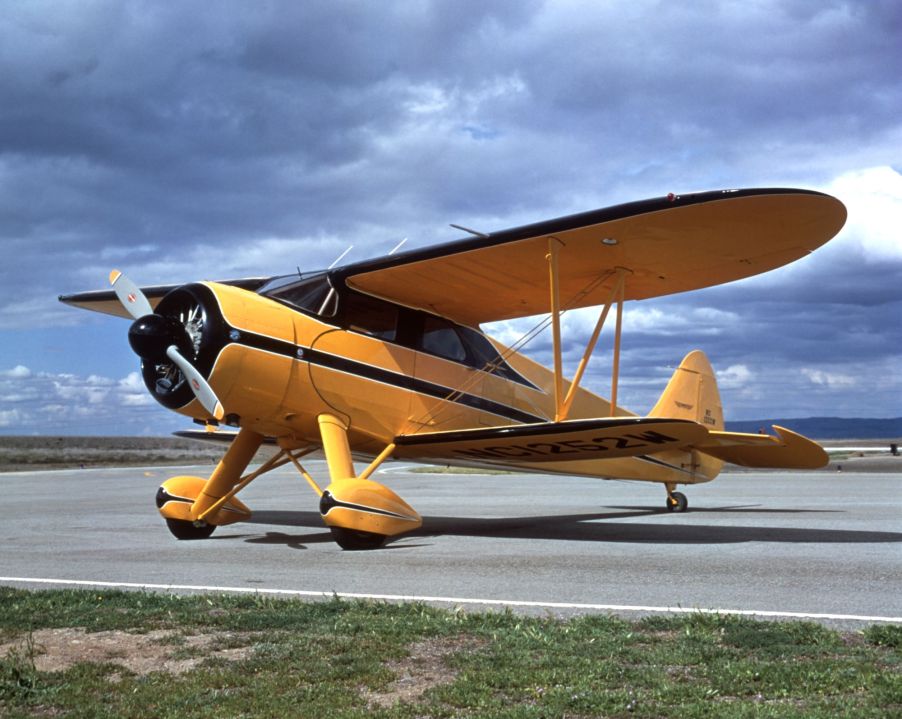
How Expensive Is It to Fly as a Hobby?
For most people, their hobbies include hiking, going to the movies, reading books, swimming, and other similar run-of-the-mill activities. For others, leisure activities come with a high price tag. When talking about extravagant sports, flying 40 airplanes has to make it to the top of this list. You will need deep pockets to take up the hobby of flying.

What is needed to begin hobby flying?
First, it is crucial to understand that anyone with good motor skills can train as a pilot. If you have ever dreamed of soaring through the skies, the good news is that you can transform this dream into a reality, thanks to the many flight schools that offer some of the best courses in flying.
Before considering taking up flying as a hobby, you should make sure you meet the eligibility requirements of the Federal Aviation Administration (FAA). First, you should have a good understanding of both spoken and written English, on top of having a private pilot or a higher certificate accredited by the AAA.
As Deccan Herald explains, you will also be subjected to knowledge tests and practical flying tests, all of which you should pass. You will further be required to meet the private pilot license requirements that align with the type of plane and the class rating you are applying for.
Ideally, you will need to complete several exams and a specified number of solo flights. This will be inclusive of a 2510 nautical mile cross-country. You will be assigned solo flights pretty early, which may feel somewhat intimidating. To complete the course, you will have to show an unprecedented level of commitment.
There are two types of licenses: the private pilot license (PPL) and the commercial pilot license (CPL). Your point of focus should be getting the PPL. Because it is of a lesser category, fewer hours are involved in training. You will need to at least complete the class 10th.
You can also participate in shows like Aero India, provided you get your acrobatic flying license and fly the plane you are rated to fly. You must take and pass an exam for every aircraft you are rated to fly. The pass mark for the exams is 70%.
How ratings work
As a private license holder, you are allowed to have multiple ratings simultaneously and fly those planes too. On the flip side, a commercial pilot is not permitted to change aircraft even with various ratings.
According to Ofly, as a hobby flyer, you may fly solo or hire an instructor or an additional pilot. Depending on the capacity of your plane, you can bring your friends and family to enjoy the ride with you.
How much does it cost to train as a private pilot?
Getting your Private Pilot License narrows down to paying for time spent in the airplane, instructor fee, and paying for the final exams and gear.
Airplane Academy breaks down this cost in a simple way. As expected, flying the airplane is going to take up a high percentage of your PPL cost. It will cost you around $5000 to $7000, which is approximately 70% of the cost of the license. This cost will also fluctuate depending on the type of plan and whether you are training in an urban or rural setting.
Instructor costs fall between $1000 and $2,500. Therefore, when choosing your training institution, make sure to check whether the fee includes instructor fees. Furthermore, to fly solo, you will also need to get at least a 3rd Class Medical Certificate, which may cost you $75 to $200 to get.
As mentioned, you will be required to take your written, oral and practical examination, which may cost you between $800 to $1000. Your gear may cost you an additional $1000, which is paid upfront. That said, you always have the option to borrow or rent your gear to reduce expenses.
Tips to finance hobby flying
The cost of flight training varies greatly depending on the school you enroll in, the experience you have, and how quickly you can graduate from the training. There are several tips you can use to lower the cost of training, according to We Florida Financial.
First, you could consider getting a loan to cover some of the costs. You can also apply for a flight training scholarship. Better still, have a conversation with your recruiter about any training reimbursements available. You may be surprised to land yourself a good offer.


